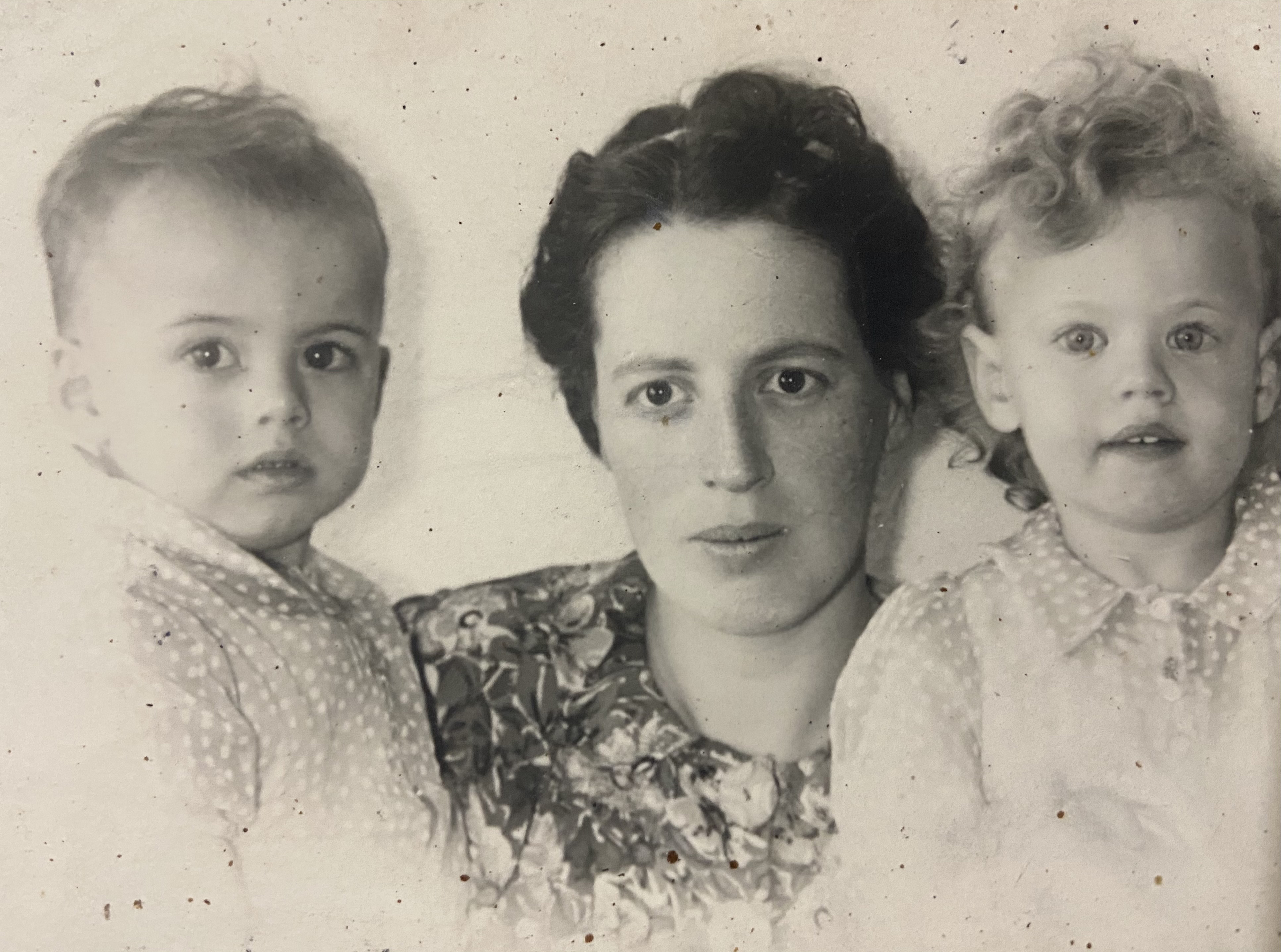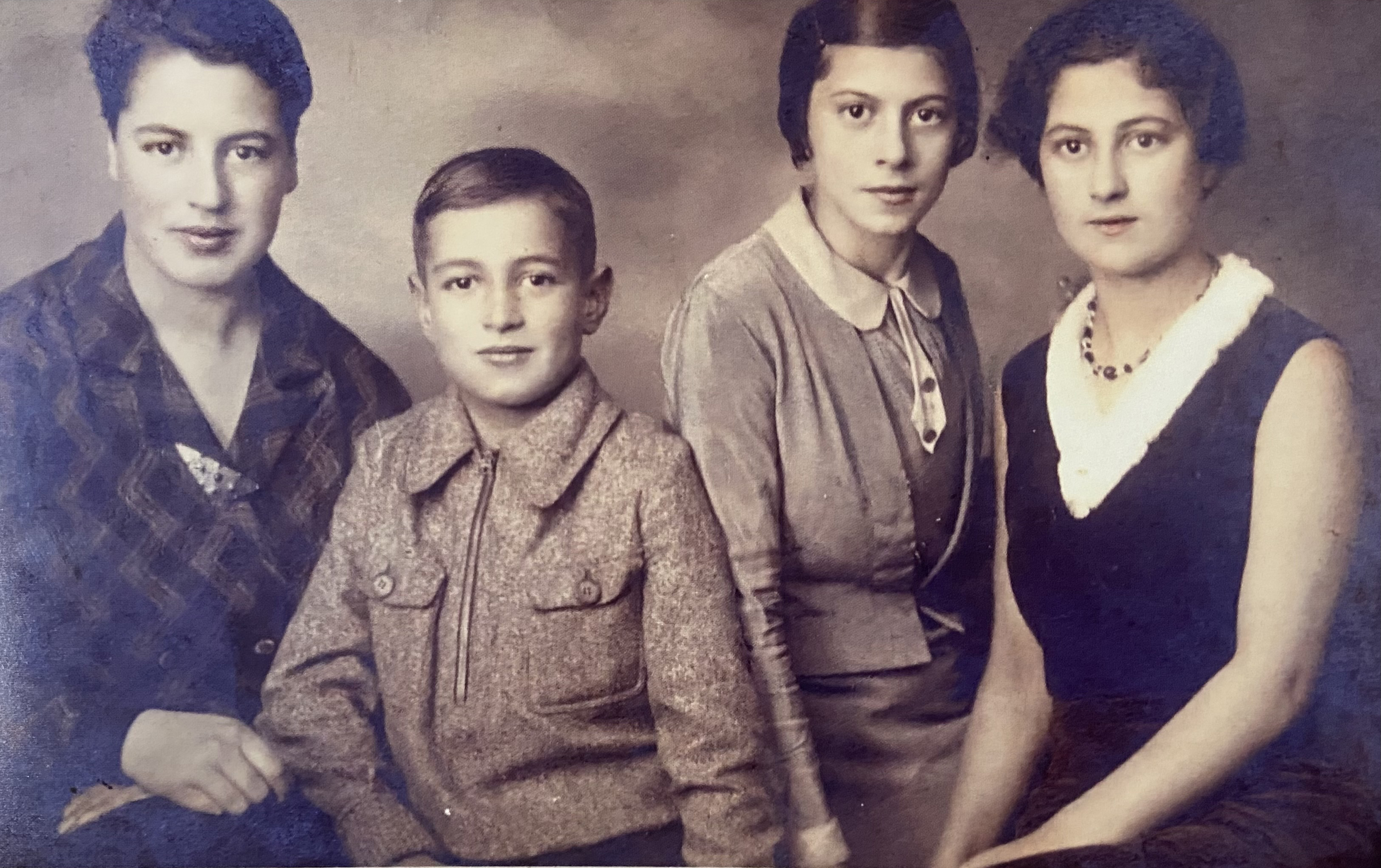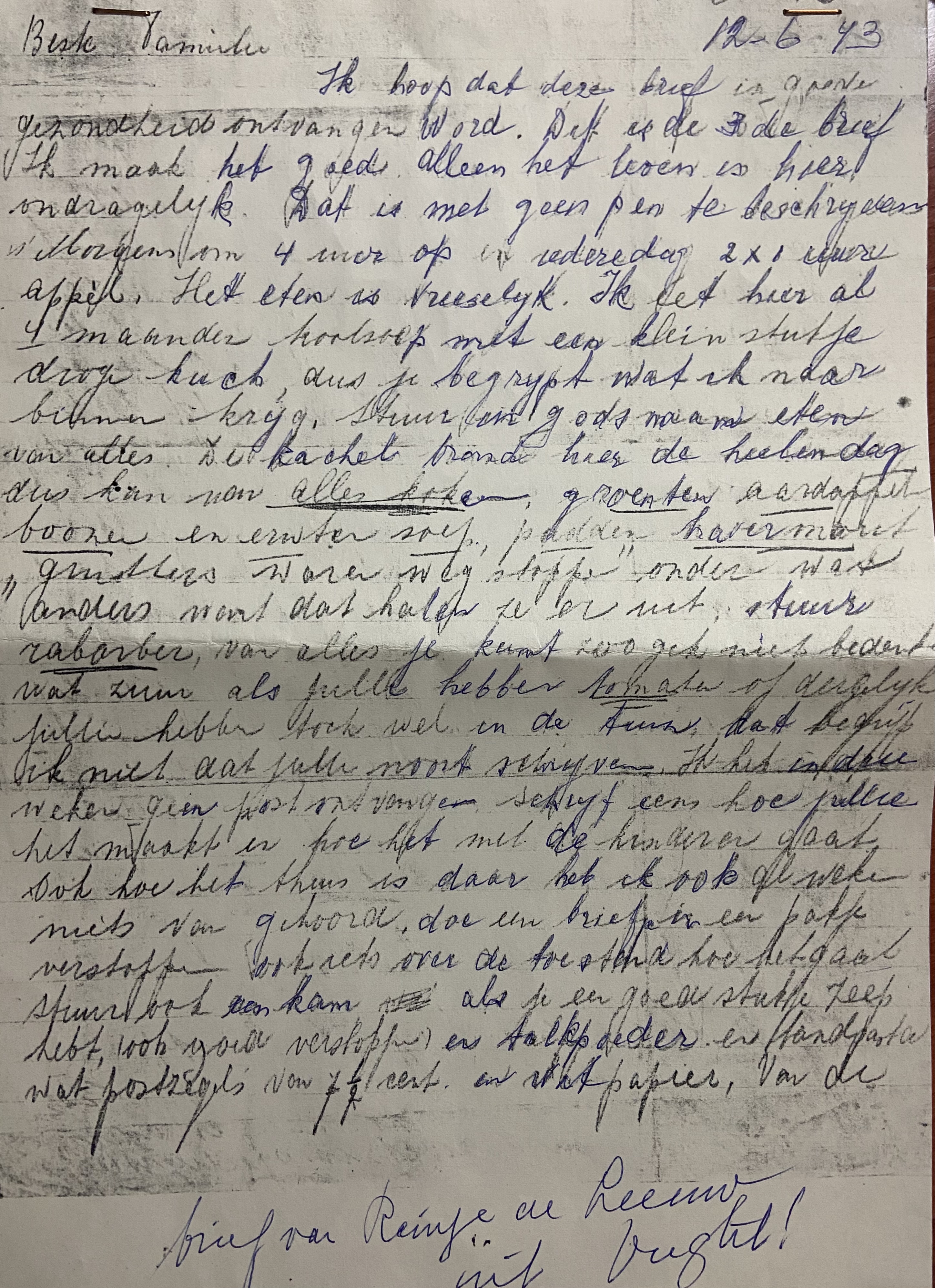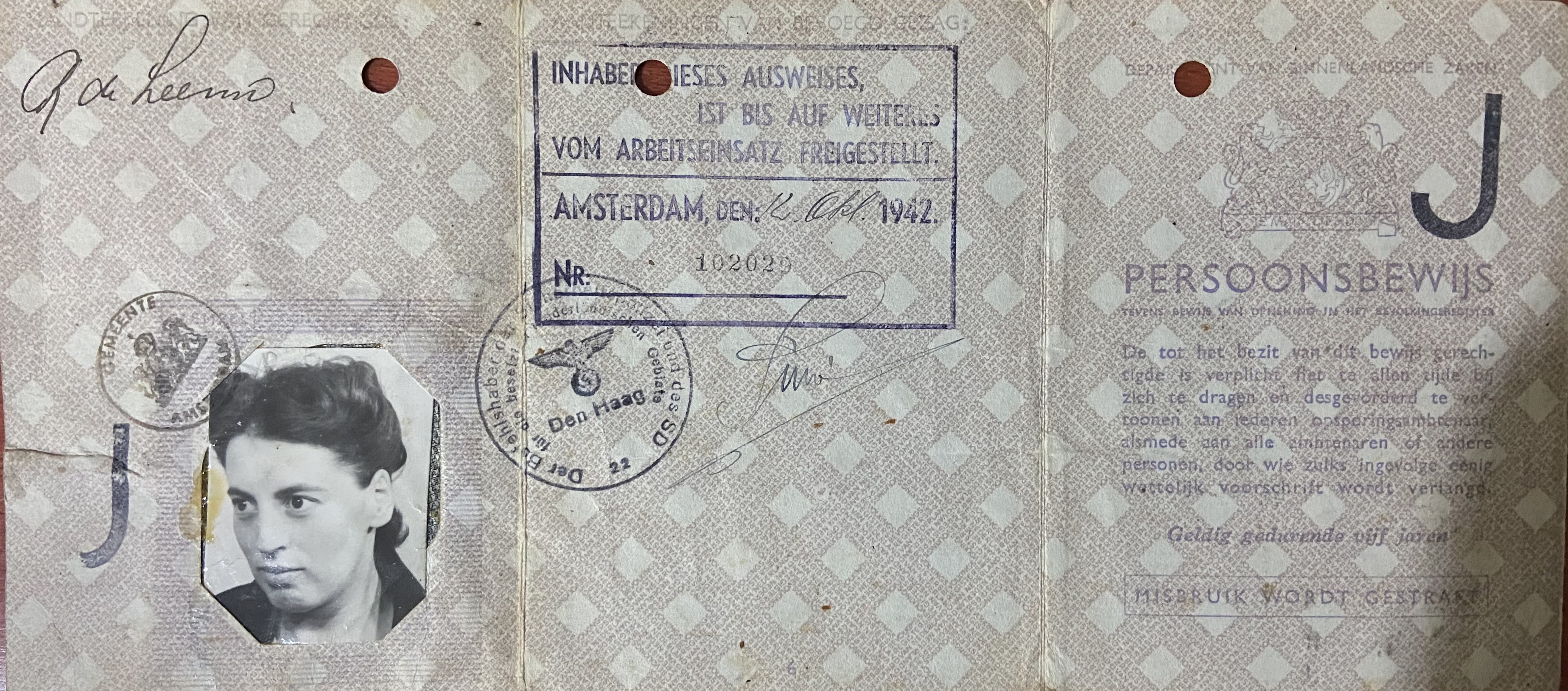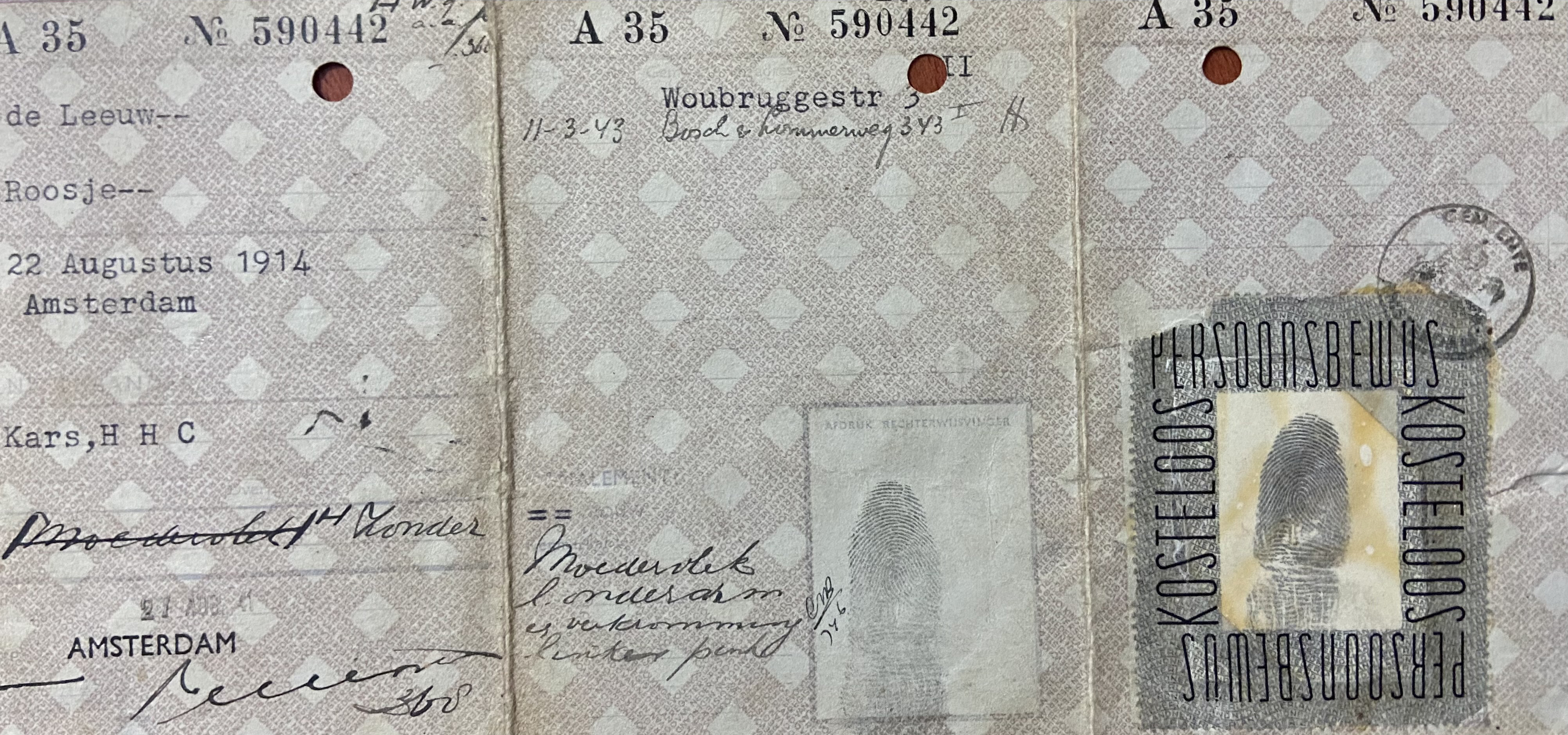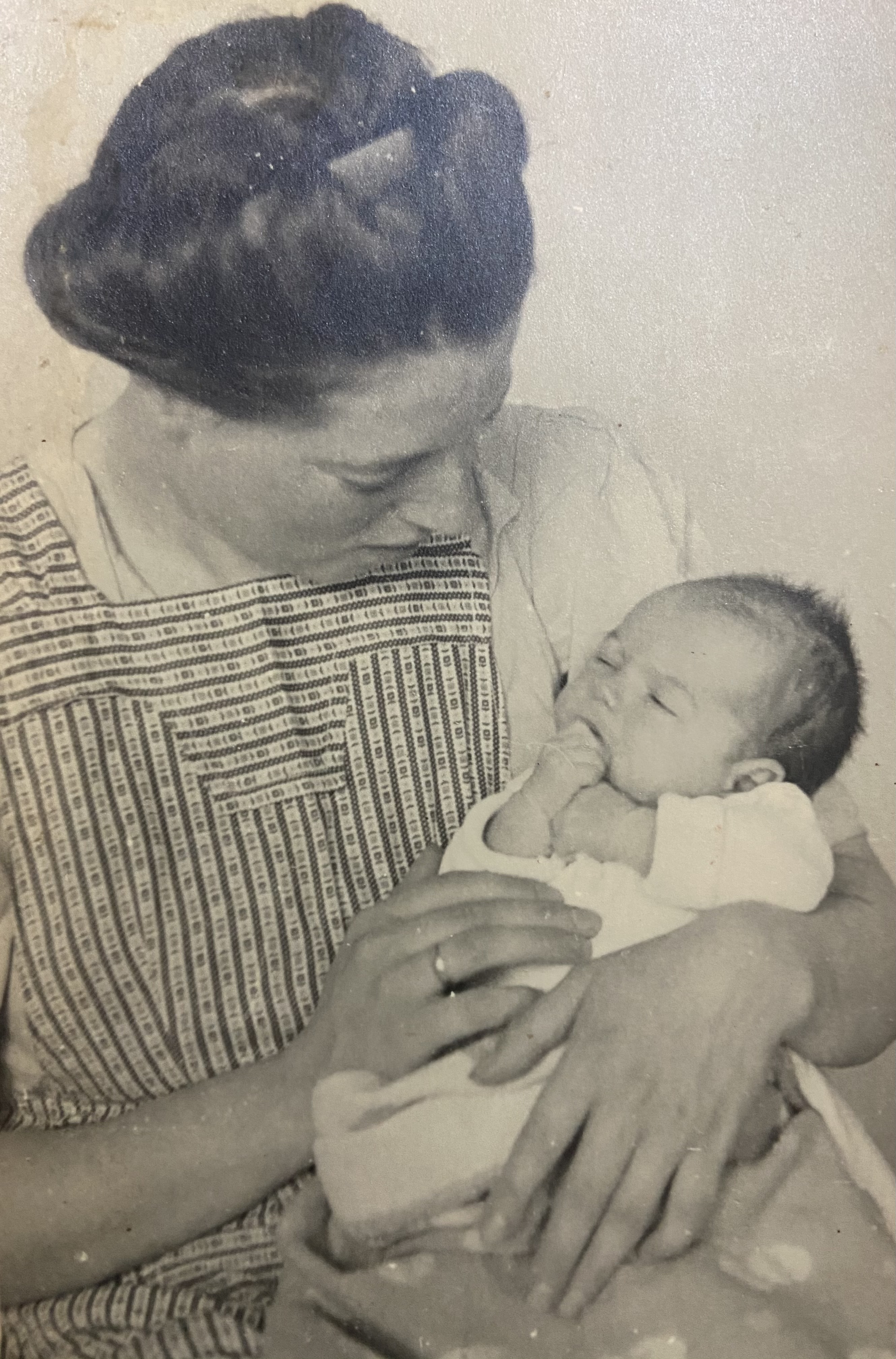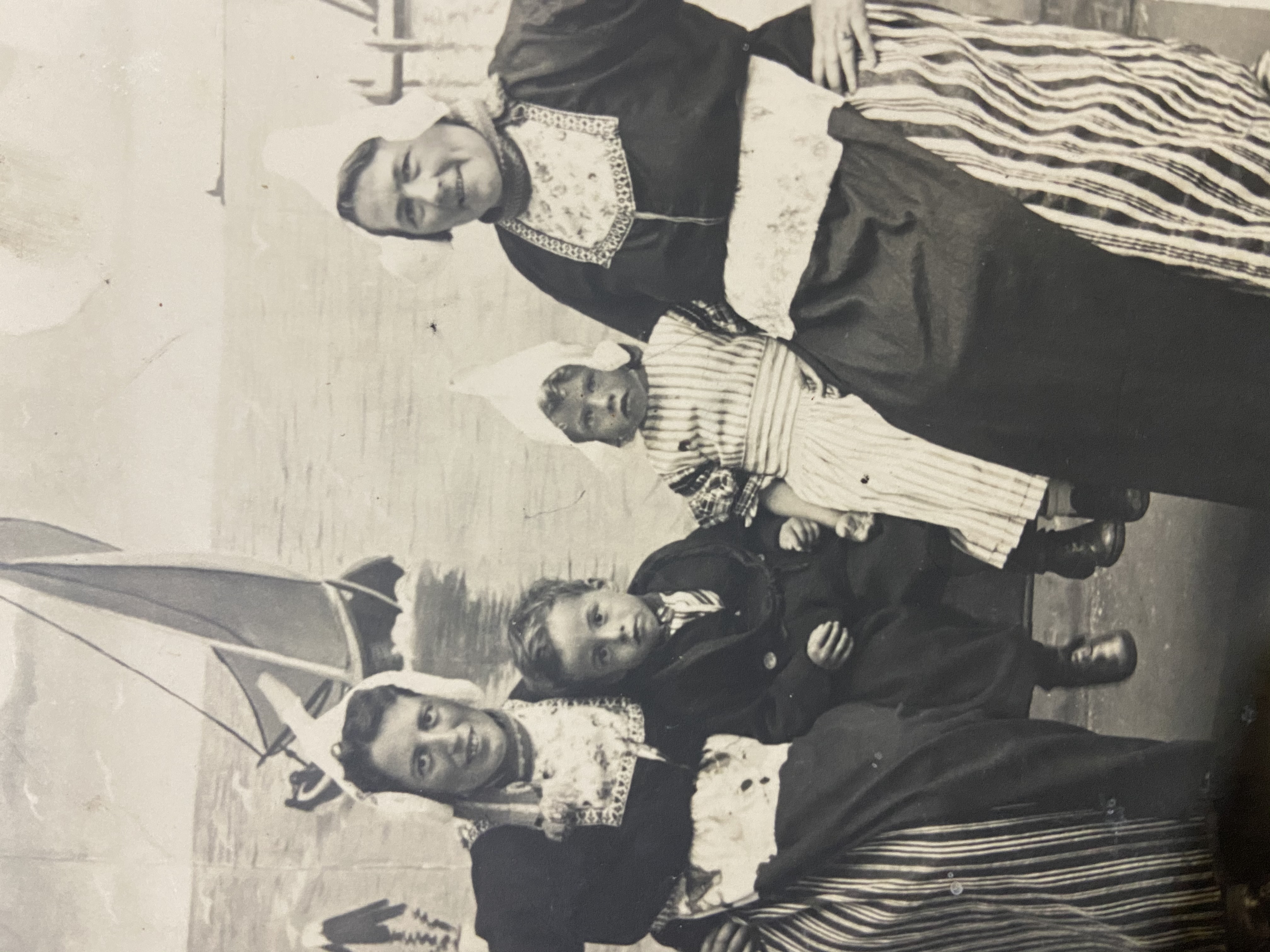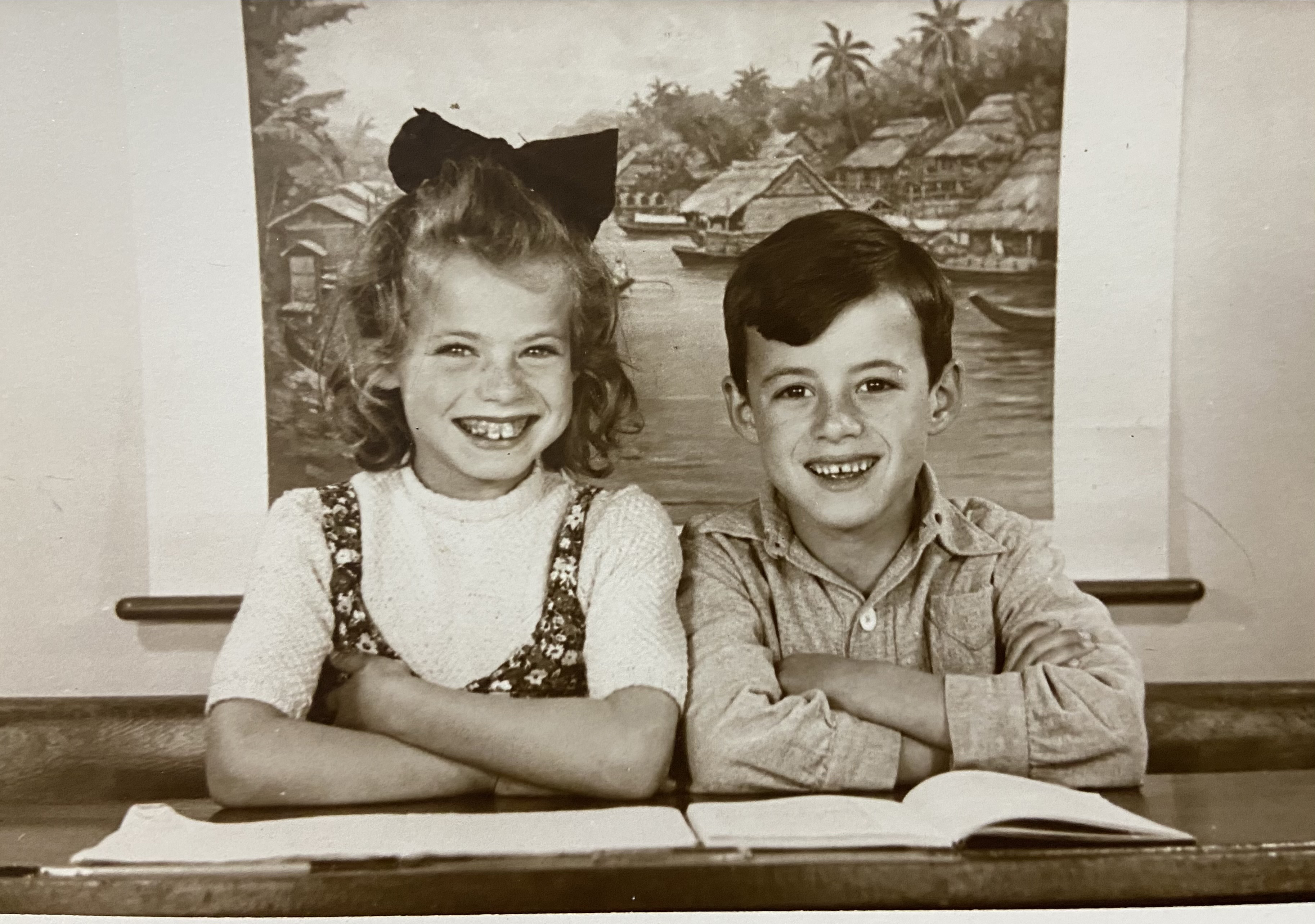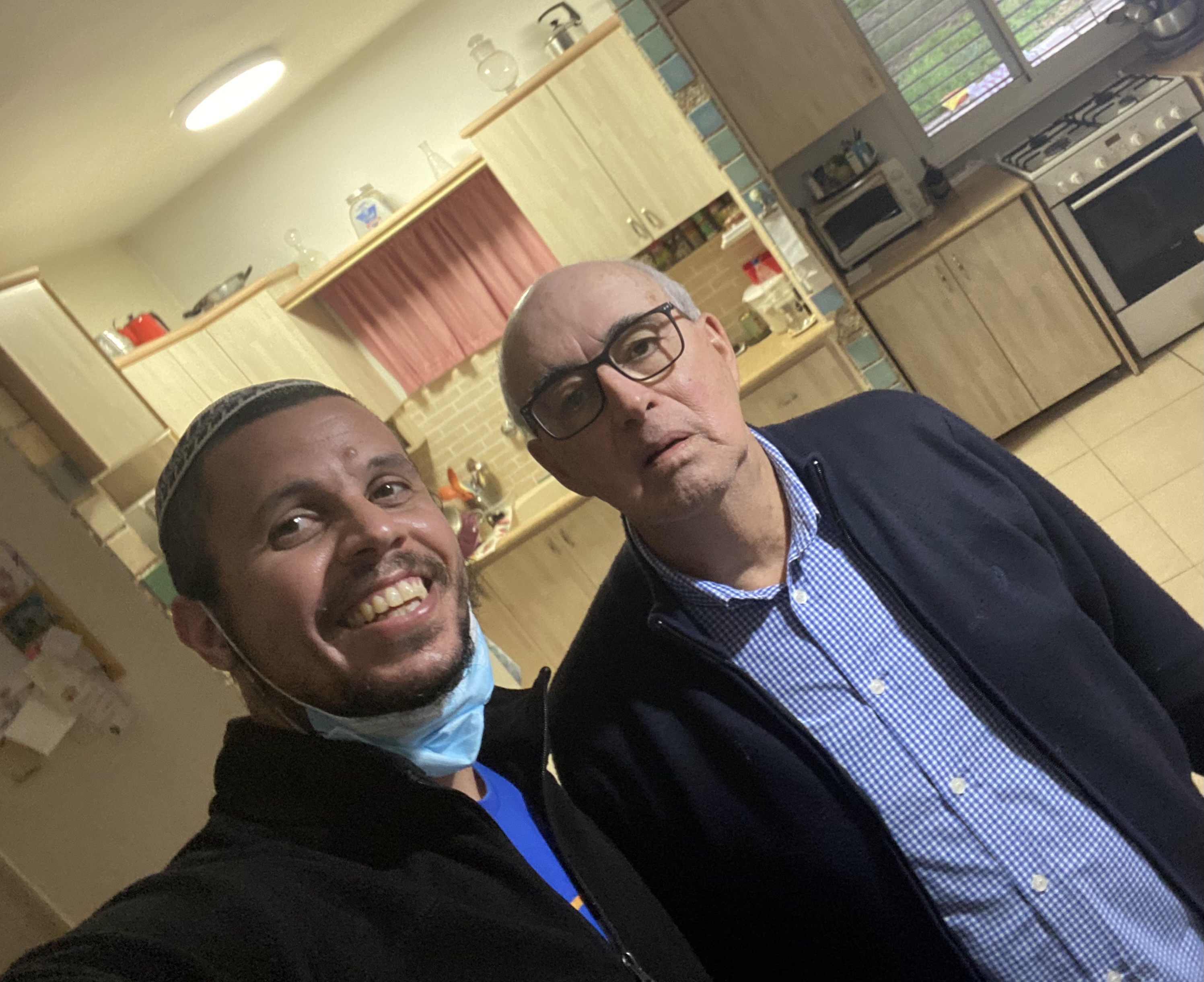Shaul Kress and his twin sister-Ada were born on July 19, 1941 in Amsterdam, the Netherlands, to Herman Kress and Roosje, née de Leeuw. Roosje – Rosa – was Jewish; Herman was a Christian. This mixed marriage helped Shaul's mother survive the war. When the Nazis invaded the Netherlands in 1940, the regime immediately began deporting Jews to concentration and extermination camps, but because Rosa was married to a Christian, she managed to escape the deportations and remain in Amsterdam during the war.
Shaul points out with pain that the rest of his mother’s side of the family did not have similar luck. They were all murdered in Auschwitz and Sobibor, as were about 80 % of all Dutch Jews.
In 1943, when Shaul's parents felt that the situation had become too dangerous, they decided to entrust Shaul and his sister to a foster family in the province of Friesland in the north of the Netherlands. The couple who fostered the children were nice farmers named Panka and Tikka Debrish from the village of Joure. The Debrish couple had two children, a daughter and a younger son. Shaul was only three years old when he was taken in by the Debrishes, so he does not have many memories of the year he lived there but he does remember that the family had a country house near a bridge and a windmill, a classic Dutch environment. "The Debrish couple always cared for me. I would see the wife all the time. I still remember the smell of the steaming bowl of potatoes she served me every day for dinner, but I don’t remember seeing her husband. I think he was engaged in resistance against the Nazis. Of course, I missed my parents a lot but, as a three-year-old child, what choice did I have?"
A year later, when the Allies liberated the Netherlands, Shaul's mother came to collect her children from the Debrish family. Shaul discovered that he had a new brother, Herman, born in 1943, but the relations between his parents were not good and they were in the middle of divorce proceedings. The war and its aftermath had led his mother to blame her Christian husband for what the Gentiles did to the Jews, and for the fact that she didn’t have any family left. Shaul’s father, however, felt that he because he was married to a Jewess, he had been more vulnerable under the Nazi regime. Shaul found himself in Amsterdam once more, but this time they (Shaul and his siblings) lived only with his mother.
After about a year, Shaul's mother met another man whom she later married. Rose and her family moved again, this time to the city of Antwerp, in the south of the country, Shaul remembers that this city was in very bad shape after the war. "About 75 % of the city was destroyed in the fierce battles that took place near the city during the war", he says. “Initially, we lived in a poor town until the city had been reconstructed and renovated.”
One of the most vivid memories Shaul has from this period was of the walk to his elementary school. “I always feel like my brothers and I were ‘neither fish nor fowl’. On the one hand, we never talked about Judaism at home and my mother had married Gentiles twice. In fact, I never had a bar mitzvah, so I never felt or understood what a Jew was. But on the other hand, at school I was always called antisemitic names and slurs. For (the other children), I was as Jewish as I could be. It's funny to say that it seems to me that precisely that taunting was what ultimately connected me to Judaism.''
In 1956, Shaul's family returned to Amsterdam following the death of Rosa’s second husband. There, Shaul joined the Habonim movement, which promoted Zionist values and immigration to Eretz Israel. And indeed, in 1962, after several years in the movement, Shaul immigrated to Eretz Israel and settled in Kibbutz Matzuva. Shaul's mother immigrated to Israel in 1968.
Today, Shaul and his wife Tirza still live in Matzuva (They have three children and six grandchildren). Shaul is very anxious to convey a message: "There is nothing more important than history. We must not forget it. Anti-Semitism is not dead yet. It has just changed its shape and is waiting for the right time to erupt again. So, it is important that we remain vigilant and learn from the past. We can only do this if we take care to strengthen our only home, the Land of Israel."
